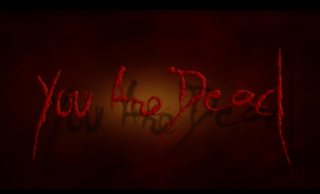Failing Better
By majormitch 4 Comments
"Ever tried. Ever failed. No matter. Try again. Fail again. Fail better."
Samuel Beckett
Next to video games, my favorite hobby is tennis, which I both play and watch a good amount of. The biggest pro tennis tournaments are dubbed the “Grand Slams,” and the most recent one -- the Australian Open in January -- produced an interesting twist on the men’s side. For those not familiar with the happenings of pro men’s tennis, I’ll keep it short and sweet. For the better part of the past decade, almost all of tennis’ most important tournaments have been won by one of four men: Roger Federer, Rafael Nadal, Novak Djokovic and Andy Murray. They are often referred to as the “Big Four,” due to how thoroughly dominant they have been for so long. And with the way tennis works, and the way there is only a single winner at any given tournament (which can have up to 128 players in the draw), that means a lot of other players have been doing a lot of losing for a very long time. You’d be forgiven for thinking, after so many losses by all but the vaunted Big Four, that most pro tennis players would be ready to throw their hands up in exasperation, say “to Hell with it” and go find something more productive to do.
The alternative to that approach is to take something from those losses. Traditionally, you gain confidence from winning, but what if you could gain something from losing? What if you could use those losses to fuel you, to learn from your mistakes, to make you better and stronger? At least one man has done this in pro tennis: Stanislas Wawrinka. He recognized that he and everyone else kept losing to these same four players over and over, that the Big Four were simply better than the rest. Rather than bemoan that fact, he decided to focus on something other than beating them. He decided that if he was going to keep losing like everyone else, then perhaps he should try to lose a little better, to improve with each loss. He embraced the idea so fully that he had the above quote tattooed on his arm. He kept trying, and he kept failing, but he kept working on improving, and each successive failure was better than the last. Eventually, after more than a year of steadily better failures, he managed to do what almost nobody else has done for a decade: he beat the Big Four and won a Grand Slam at the 2014 Australian Open.
Wawrinka’s win was inspiring for any number of reasons, but most of all because it was no fluke; this was the result of hard, diligent work by a man who’s been on the tour for a long time, but has always been overshadowed by the legends of the game. He didn’t let those continuous losses against the top players set him back or bum him out, but instead used them to get better, slowly but surely, until he finally broke through. I find this idea of “failing better” fascinating, and I don’t think it’s limited to tennis, or even sports in general. Wawrinka’s win prompted me to think about many of my own failures, in all areas of life, and how I have often learned from them to become, in my mind, a better and stronger person. Nobody’s ever perfect, and my own mistakes can provide the most poignant, resonant lessons I can ever learn, and give me the experience to hopefully avoid making similar mistakes again.
Perhaps nowhere is that more directly applicable than in games of all kinds, from sports to our favorite pastime here on Giant Bomb, video games. Games often have binary win/lose states, which can make your successes and failures even more transparent. The downside of that is that you can’t run from your failures very easily, and you can’t shift the blame somewhere else. If you lose a tennis match or a round of Street Fighter, that’s on you. It extends to non-competitive games just as easily; you die in Super Mario Bros. because you messed up, plain and simple. That can sound overly harsh, and it’s easy to see how that could be stressful and/or frustrating for people at times, but there’s an upside as well: with your failures being easier to see, it’s also easier to learn from them. And if you can learn from them, you can use that knowledge to help you do things that initially seemed impossible, as Wawrinka has shown. His win has led me to consider how I look at failure in video games, which I tend to see as a positive, instructive force.

To avoid going in circles, it might be best to use a strong example for illustration, and what better game to examine than one known for inviting failure: Dark Souls. It’s often been said that Dark Souls (or any Souls game) is strict but fair, and that when you die you know it’s your own fault. That second point is one I iterated above: you can’t run from your failures in a game. Dark Souls, more than most games, refuses to hide that fact. It never takes the blame for itself, it never sugar-coats your deaths, and it never tries to hide what you did wrong. The message is often clear, and usually along the lines of “You were too careless”. All of that works, however, because Dark Souls applies its own strict set of consistent rules. Video games can be surprisingly great teachers, and from my experience the best teachers are the strictest ones. Dark Souls is one of the strictest, and I think that strictness is one of its greatest aspects. There’s no bumbling your way through, hoping for the lucky headshot or the random dice roll to work in your favor. Everything in Dark Souls is calculated and raw, and it never deviates from the ground rules it lays down. That consistency is what makes it fair, and what makes it possible to learn from your mistakes. There are very few meaningless deaths in Dark Souls; each is a lesson to be considered carefully, and Dark Souls is a strict teacher that won’t let you pass until you learn damn near all of them.
The result of all of this is that by the time you beat Dark Souls, you feel like you’ve earned it. You feel like you’ve genuinely improved over the course of the game, that you’re in a different place from when you started. It feels like it was no fluke, just like Wawrinka’s win wasn’t a fluke either. I use Dark Souls as an example, but many video games of all kinds use failure as such an instructive tool (some do it better than others, and there are plenty of bad ways that games use failure too), and I’ve always preferred video games that challenge me and allow for failure. I’m not sure I’ve always understood exactly why, but Wawrinka’s win has made it pretty clear: without room for failure, there’s no room to learn. I can sometimes get bored in a game that’s designed such that I never fail, because I don’t feel like I’m going to improve or grow in any tangible, meaningful way. That’s not to say that I can’t enjoy games for other reasons, or that easy games are always a waste; the threat of failure can be potentially be instructive enough. But the games I find myself most invested in usually incorporate failure into their core design. It’s a strong feedback mechanism that exists to guide the player’s improvement at the game, and I find that process to be one of the most satisfying aspects of the entire medium.
Video games give us countless blank canvases on which we can paint our own successes and failures, and while it’s tempting to view failure of any kind as a negative outcome, I prefer to see them as a positive force in video games. My failures help me learn and improve at the games I play, and help me push myself to understand and accomplish tasks I might have initially thought impossible, thus enriching the experience. I don’t want to run from my failures; I want to embrace them, just as Wawrinka embraced his and won a Grand Slam. I want to keep failing the best I can.

4 Comments